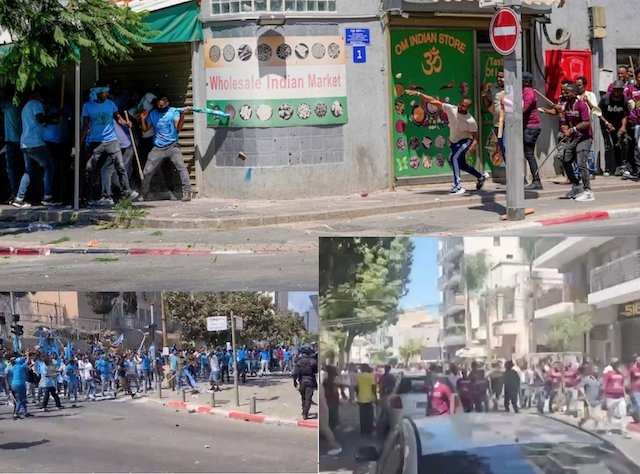The recent confrontations in Israel involving Eritrean protesters have garnered the attention of Volker Turk, the United Nations' Human Rights Chief. Turk, a frequent critic of Israel who has notably singled out the nation while often overlooking human rights abuses in countries like China, Iran, and North Korea, expressed his alarm at the elevated number of injuries that occurred during these disturbances. Remarkably, Turk seems to have bypassed video evidence and eyewitness accounts that indicate the clashes were primarily between rival Eritrean groups using sticks, bottles, and rocks as weapons.
Turk articulated his concerns via the social media platform X, formerly known as Twitter. He particularly emphasized the necessity for comprehensive investigations into the actions of the Israeli Police, who were attempting to reinstate order during a frenetic and destructive clash that inflicted damage on local businesses and vehicles. Furthermore, Turk obliquely referred to Israeli Ministers Itamar Ben Gvir and Yariv Levin when calling for a cessation of hate speech by those in authority. Both ministers had suggested relocating the asylum seekers to the affluent, liberal enclave of North Tel Aviv, or even evicting them from Israel altogether. Additionally, Turk urged respect for the principle of non-refoulement, which prohibits the expulsion of individuals to countries where they may face persecution.
“Alarmed at high number of injuries during protests involving opposing Eritrean protesters, particularly in Israel,” UN human rights chief Volker Turk said on X, formerly known as Twitter.
— Daily Tribune (@tribunephl) September 4, 2023
Read more at: https://t.co/h01i6h8Kgn pic.twitter.com/wL2QTPczmU
The unrest erupted this past Saturday at a venue in South Tel Aviv, slated to host an event supportive of the Eritrean regime. Organized by the Eritrean embassy in Israel, the event aimed to assemble regime sympathizers. In opposition, hundreds of Eritreans disenchanted with their home country's administration gathered at the site, setting off violent clashes between regime supporters and critics.
Tasked with restoring order, Israeli police found themselves ensnared in the chaos. An official statement revealed that live ammunition was employed "against rioters," resulting in injuries to at least 49 officers. Additionally, approximately a dozen Eritrean asylum seekers were reportedly hit by gunfire, seemingly originating from Israeli law enforcement. The conflicts, which resulted in over 140 injuries, transcended the immediate area of the event and extended to other regions of Tel Aviv where rival Eritrean factions clashed.
Israeli Prime Minister Benjamin Netanyahu will be deporting African migrants from Israel after 170 people were injured in violent riots between rival Eritrean migrant groups.
— Collin Rugg (@CollinRugg) September 4, 2023
Good. If only American leaders had this courage.
Over the weekend, migrants started using construction… pic.twitter.com/rXrNNEEDnz
Subsequent to these tumultuous events, Prime Minister Benjamin Netanyahu announced on Sunday that Israel is contemplating the deportation of 1,000 Eritreans involved in the unrest. Should this action materialize, it would be significant given that as of June, 17,850 Eritrean asylum seekers currently reside in Israel.
Adding another layer of complexity, Israeli Police arrested a 41-year-old migrant in the early hours it was announced on Tuesday morning. He was spotted carrying a firearm during the Saturday confrontations in Tel Aviv. Currently detained for questioning, he is due to appear before a court to extend his arrest. Further details, such as the type of weapon carried and its loaded status, have not been disclosed as of this writing.
UN rights chief Volker Turk expresses alarm over the high number of injuries, which has reached 140, during recent clashes in Israel involving Eritrean protestershttps://t.co/gxnFhnVf3w
— TRT World (@trtworld) September 5, 2023
These episodes of civil unrest and the Israeli government's subsequent responses raise numerous critical issues. On the one hand, they shed light on the deeply rooted divisions within the Eritrean community, both in their homeland and among the diaspora. On the other hand, they highlight the nuanced balance Israel must maintain between public order and human rights protections. Particularly in Israel—a democratic beacon in a region where such models are relatively rare—the complexities call for a meticulous approach informed by a firm commitment to both justice and the rule of law.


